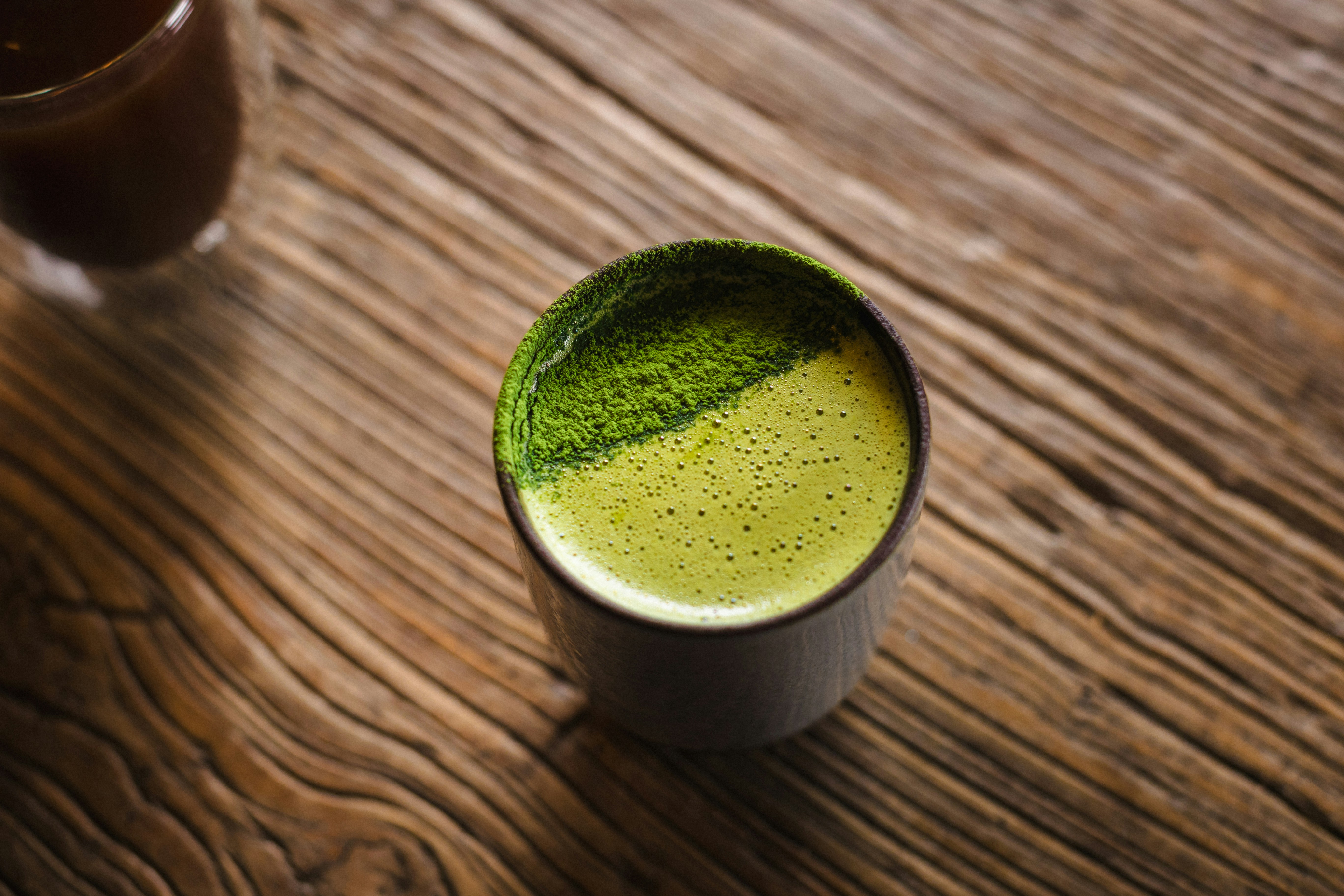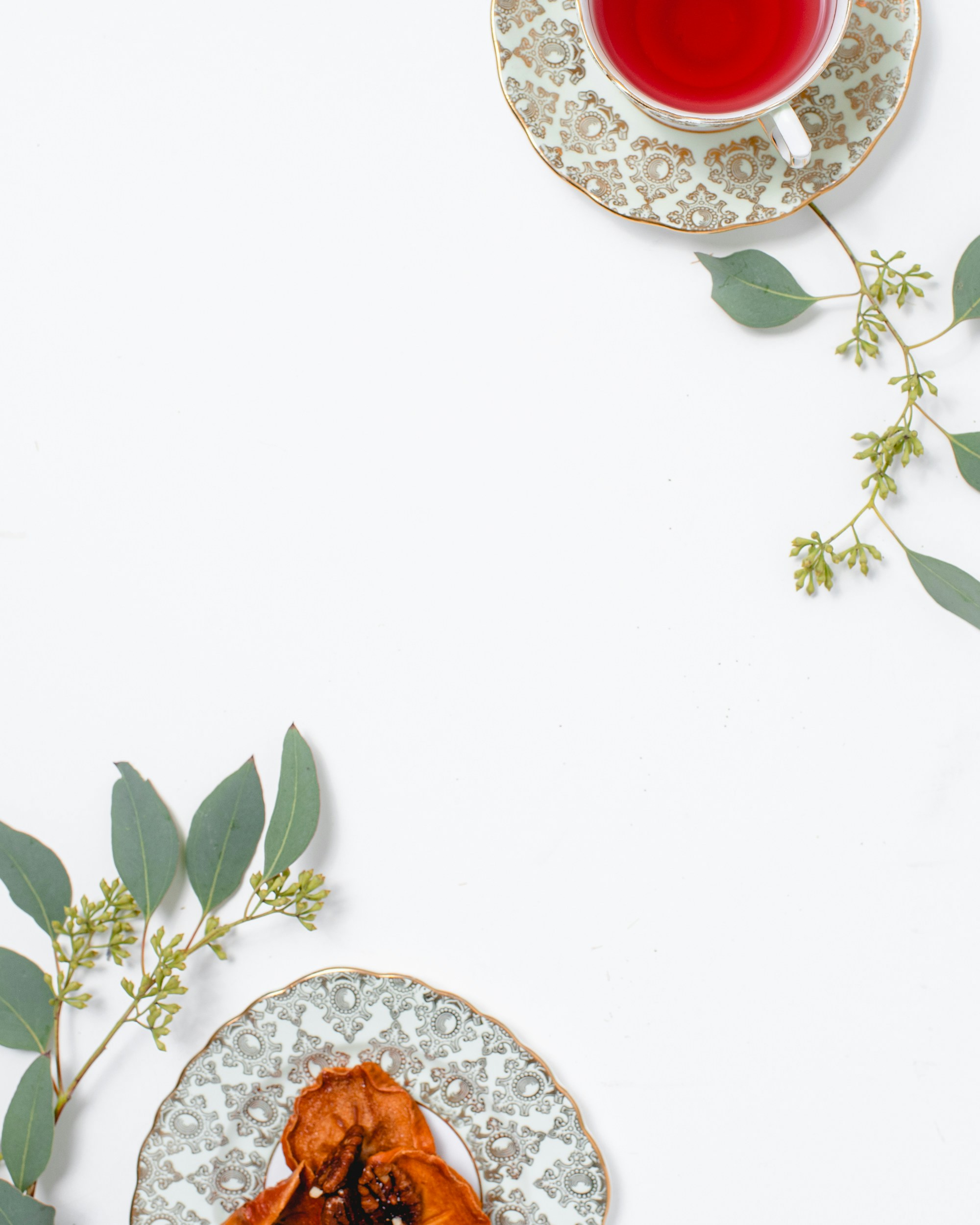Introduction
Tea, a beloved beverage enjoyed worldwide, transcends its role as a simple refreshment and embodies a deep connection to spiritual practices across diverse cultures. Throughout history, societies have recognized the profound significance of tea, not just as a drink but as a powerful medium for mindfulness, meditation, introspection, and spiritual exploration. In times of stress or turmoil, tea acts as a soothing balm, assisting individuals in regaining equilibrium and clarity amidst life’s challenges.
The ritualistic act of preparing and consuming tea encourages a much-needed pause in today’s fast-paced world. This intentional break fosters serenity, allowing for self-reflection and the cultivation of inner peace. The calming process of heating water, steeping tea leaves, and inhaling the fragrant steam elevates an ordinary moment into a contemplative experience. These rituals not only soothe the mind but also foster a sense of connection with oneself and the broader universe, enriching one’s spiritual journey.
Across centuries and continents, various rituals and traditions surrounding tea have emphasized its spiritual dimension. For instance, within Zen Buddhism, the traditional Japanese tea ceremony stands as an exquisite expression of simplicity and presence, reminding participants to embrace the present moment fully. The meticulous placement of utensils and the deliberate pace of the brewing process create a sacred space conducive to mindfulness, thereby enhancing one’s spiritual awareness and fostering a deeper connection to the present.
Furthermore, tea acts as a social catalyst, creating opportunities for connection and shared experiences. Sharing a cup of tea deepens relationships, strengthening bonds and fostering a sense of community and belonging. This shared experience resonates deeply within us, reminding us of the vital role human connection plays in our spiritual growth and overall well-being. It underscores the interconnectedness that forms the foundation of a fulfilling life.
As we explore the intricate relationship between tea and spiritual practices, the wisdom gained can serve as invaluable guidance for those feeling overwhelmed by the demands of modern life. Through mindful tea consumption and thoughtful reflection, tea becomes a steadfast ally in our pursuit of spiritual well-being, leading us toward a more centered and harmonious existence.
The Ritual of Brewing: Cultivating Mindfulness Through Tea
The process of brewing tea is more than mere preparation; it is a deeply mindful ritual that encourages presence, intentionality, and a heightened awareness of the present moment. To fully embrace this practice, begin by selecting high-quality tea leaves that resonate with your preferences, whether it’s a calming chamomile, a vibrant green tea, or a robust black tea. This initial choice sets the tone for a mindful experience, inviting you to reflect on your current emotional and spiritual state, acknowledging your needs and desires.
After selecting your tea, the next step involves measuring the appropriate amount. Engage all your senses as you weigh or scoop the tea leaves. Notice the texture, color, and aroma of the leaves, appreciating the subtle nuances that distinguish each variety. This attention to detail strengthens your connection to the tea and deepens your awareness of the present moment, fostering a sense of groundedness and presence. This focus on sensory experience is essential for enhancing spiritual well-being, as it anchors your mind in the present, drawing it away from distractions and anxieties.
As you heat the water to the ideal temperature for your chosen tea, take a moment to breathe deeply and consciously. Visualize the rising steam enveloping you, creating a tranquil and meditative atmosphere. Pouring the hot water over the tea leaves marks a pivotal moment in the ritual. Observe as the leaves unfurl, releasing their vibrant colors and captivating fragrances. This visual transformation serves as a poignant reminder of the beauty of change, growth, and evolution within your own personal journey.
Finally, during the steeping process, dedicate time for quiet reflection or express gratitude for the nourishment you are about to receive. When it is time to savor your tea, inhale deeply, allowing the aroma to fill your senses, awakening your olfactory awareness. Each sip should be a mindful exploration of flavor, warmth, and texture, grounding you further in the present moment and fostering a deeper connection with the ritual. Through this deliberate and intentional process, the ritual of brewing tea becomes a transformative practice that nourishes both body and soul, fostering spiritual well-being and mindfulness in your everyday life.
Health Benefits of Tea: Building a Foundation for Well-being
Tea has been cherished for millennia not only for its delightful taste but also for its numerous health benefits that contribute to the well-being of both body and mind, nourishing physical health while promoting spiritual growth. Different varieties of tea, such as green, black, white, and herbal teas, offer unique properties that contribute to emotional stability, mental clarity, and overall well-being. For example, green tea is renowned for its abundance of antioxidants, particularly catechins, which are known to combat oxidative stress and support cognitive function. Studies suggest that these antioxidants may enhance mood through their positive effects on brain chemistry, fostering a more balanced emotional state.
Black tea, another popular choice, contains the amino acid L-theanine, which has been shown to improve focus, concentration, and alleviate stress, creating a sense of calm and mental clarity. This calming effect proves beneficial for individuals seeking to maintain a peaceful mindset throughout their day. In contrast, herbal teas like chamomile and peppermint are often chosen for their relaxing properties, promoting a sense of tranquility and ease. Chamomile, in particular, is celebrated for its ability to encourage restful sleep due to its mild sedative effects, leading to clearer thoughts upon waking and fostering a deeper connection with one’s inner self.
Beyond its individual benefits, tea plays a pivotal role in cultivating a mindful lifestyle. The ritual of preparing and consuming tea encourages intentional pauses in our often hectic lives. This conscious practice allows for self-reflection and promotes mindfulness, providing opportunities for spiritual contemplation. Research suggests that engaging in such rituals can enhance spiritual well-being and foster a greater sense of purpose and fulfillment. By integrating tea into your daily routine, you can establish a foundation for holistic wellness, nurturing both your physical body and your spiritual essence. Embracing tea as an integral part of your lifestyle establishes it not merely as a beverage choice but as a powerful tool for cultivating spiritual well-being.
Tea and Community: Forging Meaningful Connections
Tea drinking transcends mere consumption; it acts as a powerful catalyst for building connections and strengthening community ties. In numerous cultures, sharing a cup of tea is not just a customary practice but a deeply ingrained social ritual that fosters warmth, camaraderie, and a sense of belonging. This communal aspect of tea offers a unique window into the heart of human interaction, where conversations flow freely, just like the tea itself, creating a space for shared experiences and deeper understanding.
Consider the tranquil atmosphere of a traditional tea ceremony, with its emphasis on mindfulness and presence. In these ceremonies, participants gather not only to appreciate the art of tea preparation but also to connect with one another on a deeper level, sharing a moment of quiet contemplation and mutual respect. Through this shared experience, bonds are strengthened, conversations become more meaningful, and a sense of community flourishes. Whether it be a Japanese tea ceremony, a British afternoon tea, or a Chinese Gongfu tea session, each tradition emphasizes connection and shared experience.
In contemporary settings, tea houses and cafes serve as social hubs where individuals connect over their shared love for this ancient beverage. The atmosphere encourages dialogue and interaction, fostering connections between friends, colleagues, or even strangers. Stories and experiences flow organically amidst steaming cups of tea, often transforming casual meet-ups into cherished memories and opportunities for connection and shared understanding.
Moreover, numerous groups and initiatives revolve around tea making and tasting sessions, creating communities around shared interests and passions. These gatherings offer platforms for individuals to share knowledge about various teas and brewing techniques, while also providing opportunities for personal growth, spiritual exploration, and mutual support. The simple act of sharing tea becomes multifaceted, nurturing friendships, promoting mindfulness, and significantly contributing to community building.
Cultural Rituals: Tea Traditions Around the World
Tea holds a significant place in cultural rituals worldwide, embodying spiritual meaning and reinforcing communal ties across diverse societies. In Japan, the tea ceremony, known as “Chanoyu,” is a highly formalized practice that transcends simple beverage consumption. It represents a profound spiritual and aesthetic experience deeply ingrained in Japanese culture. The Japanese tea ceremony emphasizes harmony, respect, purity, and tranquility, involving meticulous preparation and presentation, with hosts striving to create an atmosphere of peace and mindfulness for their guests. Each ritualistic step carries deeper symbolic meaning, inviting participants into a contemplative state that fosters spiritual well-being.
Similarly, Chinese tea culture is rich in history and tradition, often involving intricate practices like the Gongfu tea preparation method. This method focuses on the artful brewing of high-quality teas, allowing participants to fully appreciate the tea’s essence, subtle flavors, and captivating aromas. The act of serving and drinking tea in China is not merely about enjoyment; it embodies the cultivation of harmony and respect between friends, family, and guests, strengthening social bonds and reinforcing cultural values. In this context, tea acts as a bridge, fostering deeper connections between individuals through shared experience and understanding.
Beyond Asia, diverse cultures have integrated tea into their own unique spiritual and social practices. In Morocco, the preparation and serving of mint tea is more than a culinary custom; it is a profound gesture of hospitality deeply woven into the cultural fabric. The intricate pouring techniques create layers of flavor, while the shared experience enriches the encounter emotionally. This fusion of social and spiritual elements underscores tea’s unique ability to foster connections and cultivate a sense of belonging across diverse backgrounds.
The rich tapestry of tea rituals around the world reveals how this seemingly simple beverage is intertwined with spiritual practices and cultural identities. By appreciating these diverse traditions, we can uncover deeper meanings and enrich our own spiritual journeys through the communal sharing of tea, fostering intercultural understanding and appreciation.
Tea as a Meditative Practice: Cultivating Inner Peace
The act of drinking tea can be a profound meditative practice, fostering inner peace, promoting spiritual growth, and providing a sanctuary of tranquility in our busy lives. Incorporating tea into your daily meditation routine provides a dual experience of mindfulness and reflection, transforming a simple act into a powerful opportunity to center your mind and nourish your spirit. Begin by selecting a quiet space where you can fully immerse yourself in the experience, free from distractions and interruptions.
As you gather your tea supplies, consider the type of tea that best aligns with your current emotional state. Herbal teas like chamomile or lavender can promote relaxation, while green tea can invigorate and clarify your thoughts. Your choice of tea plays a crucial role in shaping your meditative journey, setting the tone for your practice. Once you have chosen your tea, take a moment to appreciate the colors and fragrances, engaging your senses fully as you transition from the chaos of daily life into a state of serenity.
During the preparation process, pay close attention to each movement: the boiling water, the steeping leaves, and the rising aroma all act as anchors for your mindfulness. Be present in these moments, focusing your attention entirely on the process at hand. Once your tea is prepared, find a comfortable position and settle in. With each sip, allow the warmth of the tea to envelop you, experiencing not only the sensory pleasure but also the emotional comfort it provides. Use this time for quiet contemplation, observing your thoughts and sensations without judgment, cultivating a deeper awareness of your inner world.
Integrating tea into your meditation practice will not only enhance your spiritual insights but also establish a sense of peace and tranquility in your daily life.
The Symbolism of Tea: Unveiling Life’s Lessons
Tea carries a rich tapestry of symbolic meanings, extending beyond its simple enjoyment as a beverage. The process of brewing tea serves as a profound metaphor for essential life lessons, offering insights into patience, transformation, and renewal. Exploring these symbolic layers can enrich our understanding of ourselves and our spiritual journeys.
Central to tea’s essence is the concept of patience. The meticulous art of tea preparation requires time and careful attention, reminding us that the most rewarding experiences often require waiting and perseverance. This principle is mirrored in our own lives, where patience is often essential for navigating challenges and achieving our goals. Just as tea leaves must steep to release their full flavor, we too must allow our experiences and emotions to unfold at their own pace, creating space for growth and self-discovery.
Tea also embodies the principle of transformation. The act of steeping leaves in hot water transforms them into a soothing elixir, symbolizing our own capacity for change and growth. Life is a continuous journey of change and transitions, many of which might initially seem daunting. Like tea leaves changing form, we possess the innate ability to adapt and evolve in response to our circumstances. Embracing this transformative power allows us to approach challenges with resilience and courage, furthering our spiritual development.
Finally, tea represents renewal. Each cup offers a chance to pause, reflect, and revitalize our spirits. In the midst of daily stresses, moments spent enjoying tea can provide a much-needed respite, encouraging us to reconnect with our inner selves and restore balance. This simple ritual serves as a gentle reminder to prioritize our spiritual well-being amidst the demands of modern life. The act of savoring tea becomes an act of self-care, nurturing our inner peace and fostering a sense of renewal.
Personal Stories: Tea’s Influence on My Spiritual Path
Throughout my own journey of self-discovery, tea has played a transformative role in nurturing my spiritual well-being, offering profound insights and enriching my understanding of myself and the world around me. One particularly memorable experience occurred during a trip to Japan, where I participated in a traditional tea ceremony as part of my exploration of mindfulness practices. The meticulous preparation of matcha, the serene atmosphere, and the wisdom shared by the tea master facilitated a profound sense of presence and awareness. Each sip of matcha deepened my connection to the present moment, reminding me of the balance I often seek in life. This experience inspired me to incorporate a mindful tea practice into my daily routine, creating space for introspection and tranquility.
Another poignant encounter involved a close friend who shared their experience of using herbal teas for healing and comfort during a challenging period in their life. They described how chamomile tea, steeped with intention and love, became a nightly ritual, providing solace and tranquility after long, difficult days. The rising steam from the cup brought a sense of calm, creating space for reflection and processing emotions. This practice gradually evolved into a deeper connection with their spirit, allowing for emotional healing and the discovery of inner peace.
I also recall a community gathering centered around chai, where an elder shared stories about the unifying power of tea. They explained how the act of preparing and sharing chai creates connections between people, with the warm spices and sweet flavors embodying togetherness and shared narratives. Listening to their stories highlighted how tea rituals extend beyond the beverage itself, fostering moments of connection, community, and shared experience on our individual spiritual paths.
Conclusion: Embrace the Power of Tea for Spiritual Well-being
Reflecting on the multifaceted relationship between tea and spiritual well-being reveals the array of benefits tea offers, extending far beyond simple physical nourishment. The act of drinking tea becomes a powerful ritual, grounding us in the present moment, promoting mindfulness, and fostering a deeper connection with our inner selves. This connection is often amplified by the community aspect of tea drinking, where shared experiences create bonds of support and understanding.
The calming properties of various tea types, including green, herbal, and black teas, are well-established, offering natural ways to reduce stress, promote relaxation, and create a sense of inner peace. These teas encourage mindfulness, inviting us to savor each moment and engage in reflective practices. By fully experiencing the rich flavors and aromas, we can more readily immerse ourselves in meditative states, enhancing our spiritual practices, whether through formal meditation, prayer, or quiet contemplation.
Incorporating tea into your daily routine creates a sense of ritual and intentionality, enhancing self-care and promoting emotional clarity and inner peace – essential components of spiritual well-being. Whether it’s a solitary moment with a cup of herbal tea or a shared experience with friends over black tea, the role of tea in our lives can deeply enrich our spiritual journeys.
As you explore your own path, consider actively integrating tea into your lifestyle alongside community engagement and mindful practices. By doing so, you will not only enhance your spiritual well-being but also cultivate opportunities for deeper connection, personal growth, and a sense of overall wellness.








Leave a Reply